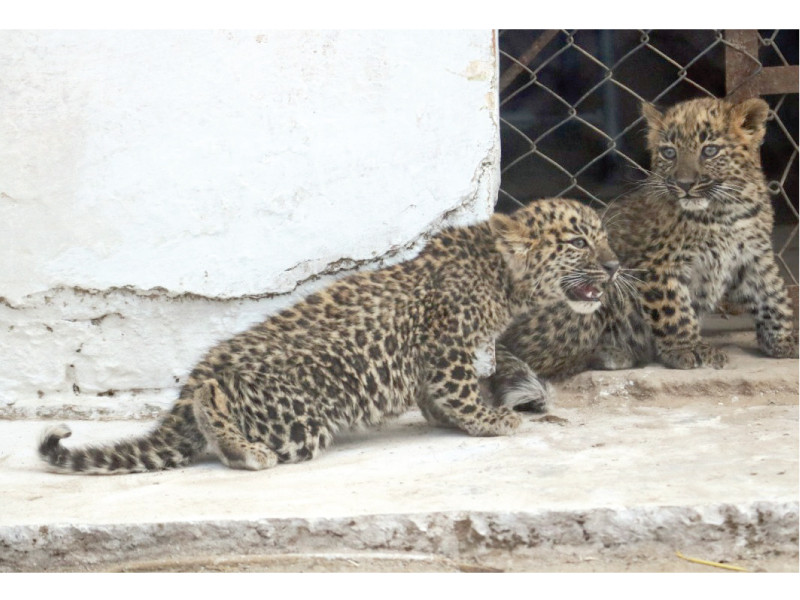
The Khyber Pakhtunkhwa Wildlife Department has transferred two-month-old cubs, Nilo and Sultan, to Islamabad
Islamabad has received two cubs of Common Asian Leopard, rescued from the poachers by the Khyber Pakhtunkhwa Wildlife from the scenic Jabri town of Haripur District. The leopard mating season starts in February, and as a result, the ratio of leopards in the wild increases with an increasing threat of poaching and hunting of the endangered cat species.
This pair of Common Asian Leopard cubs was found by the KP Wildlife Department without their mother leaving the young wildcats susceptible to poaching and illegal trafficking. However, since wildlife cubs and new-born require great and their survival ratio in Zoo or captivity without expert care is almost zero.
Initially the KP Wildlife Department took the rescued cubs to Abbottabad and tried to find their mother so that they could be reunited but of no help.
Upon arrival at the Rescue Centre in Islamabad, the cubs underwent a health check-up by a veterinarian and were found to be in good health, although they will require vaccines and de-worming, she added.
However, both organisations will work together to determine a permanent home for the leopards, as they are unable to be released back into the wild. The former zoo site, which spans over 28 acres of land, offers ample space to create a sanctuary for the two leopards.
The common leopard, classified as critically endangered in Pakistan by WWF-Pakistan, faces severe threats from hunting across the country. It is imperative that necessary measures are taken to protect and preserve these majestic animals before they vanish from our forests.
As per the two-year-old camera trap study, there are around a dozen, or eight leopards inhabiting the Margalla Hills National Park and show a thriving trend of growth. However, the World Wildlife Fund for Nature (WWF-Pakistan) has provided to hold the next phase of the camera trap study to ascertain the exact situation.
